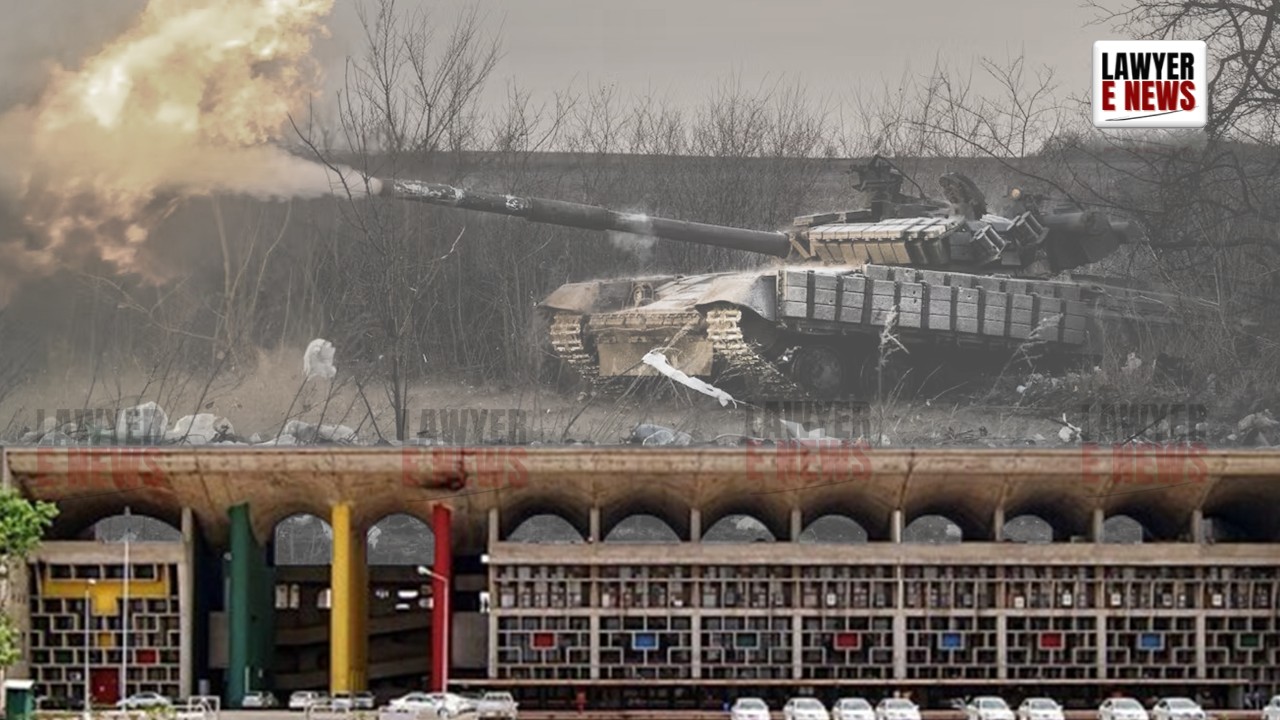-
by Admin
18 February 2026 2:25 PM



“Entry of General Public, Lawyers, Ministerial Staff, Judicial Officers and all other concerned be restricted to bare minimum” – Registrar General’s Directive for Pathankot, Gurdaspur, Tarn Taran, Ferozepur, Fazilka and Amritsar Courts
On May 9, 2025, the Punjab and Haryana High Court issued a directive ordering restricted functioning of District and Sub-Divisional Courts in six border districts—Pathankot, Gurdaspur, Tarn Taran, Ferozepur, Fazilka, and Amritsar—till May 14, 2025, in light of “ensuring the safety of General Public, Advocates, Litigants, Staff and Judicial Officers.” The decision comes in response to unspecified exigencies and emphasizes limiting footfall in court premises while maintaining judicial access for urgent matters.
The High Court’s administrative order arises from emerging circumstances in the specified districts—likely related to security or public health concerns—though the specific trigger remains unstated in the circular. Similar directions were previously issued for Amritsar on May 8, 2025, but have now been superseded by this consolidated directive.
This development marks a significant temporary shift in the standard court functioning, echoing protocols first seen during the COVID-19 pandemic.
1. Restricted Court Access and Functioning
The order mandates the temporary closure of physical access to all courts in the listed districts for public and most court users:
“The Courts at aforesaid Headquarters and its Sub-Divisions be closed temporarily for public entry… and be run in a restricted manner till 14.05.2025.”
Only urgent legal matters will be taken up. These include:
Bail Applications
Stay Applications
Cases involving imminent expiration of limitation period
Other urgent matters as deemed fit
2. E-Filing and Virtual Hearings as Default
Court proceedings for urgent matters will be conducted exclusively via video conferencing, utilizing secure platforms like Vidyo, WebEx, Lifesize. In the event of technical failures, fallback platforms such as Zoom, WhatsApp, and Google Duo may be used:
“Permission be granted for hearing of urgent cases through Video Conferencing mode… In case of technical failure… the hearing may be conducted through WhatsApp, Zoom and Google Duo.”
Urgent filings must be done via e-filing. Physical filing (if unavoidable) is limited to a narrow time slot: “The time period of filing of urgent cases, through physical mode be restricted from 11.00 a.m. to 02.30 p.m.”
3. Production of Accused Only via VC
In a critical procedural modification, production of undertrials from police or judicial custody before Magistrates and Sessions Judges is only allowed through video conferencing during the restriction period: “Production of accused from police/judicial custody before the Court be permitted only through video conferencing mode…”
4. Staffing and Remote Work Protocols
Court staff attendance is reduced to 50% on rotation basis.
Remaining staff must work from home and remain within station limits, prepared for immediate duty if required.
Further reduction in staffing is left to discretion of the respective District & Sessions Judges based on the situation.
5. Lok Adalat Postponed
The scheduled National Lok Adalat on May 10, 2025 stands postponed, reflecting the court’s recognition of the need to avoid public gatherings: “The holding of National Lok Adalat on 10.05.2025 be postponed.”
6. Weekend Duty Courts to Operate Remotely
Even the Duty Magistrate will conduct proceedings via video conferencing on the weekend dates of May 10–11, 2025.
The directive from the Punjab and Haryana High Court reflects an agile judicial response to uncertain local conditions, prioritizing public safety while upholding access to justice. By limiting proceedings to urgent matters, leveraging virtual platforms, and instituting remote work protocols, the High Court seeks to balance the twin imperatives of safety and constitutional access to justice under Article 21.
This administrative order serves as a reminder of the judiciary’s evolving operational adaptability in response to regional exigencies—setting a procedural precedent for future temporary suspensions of physical court functioning in times of crisis.
Date of Decision: May 9, 2025
